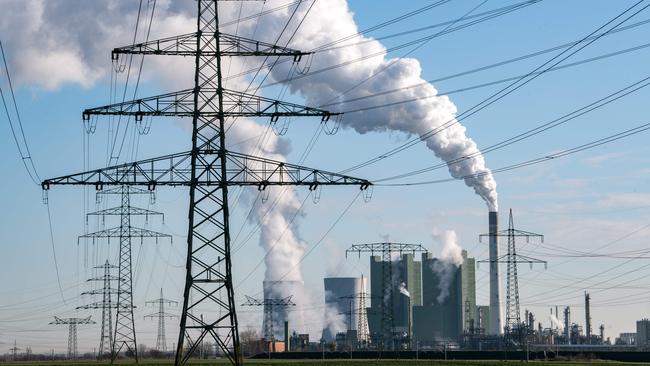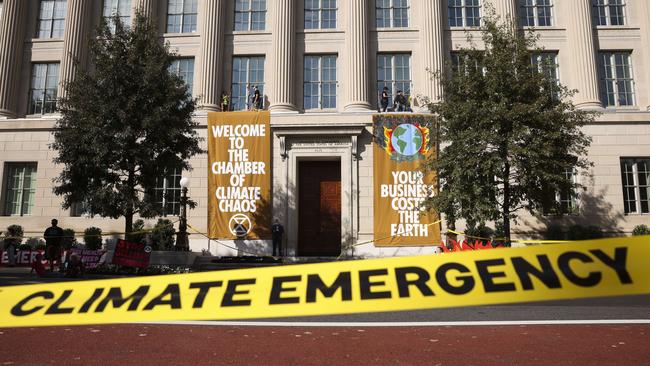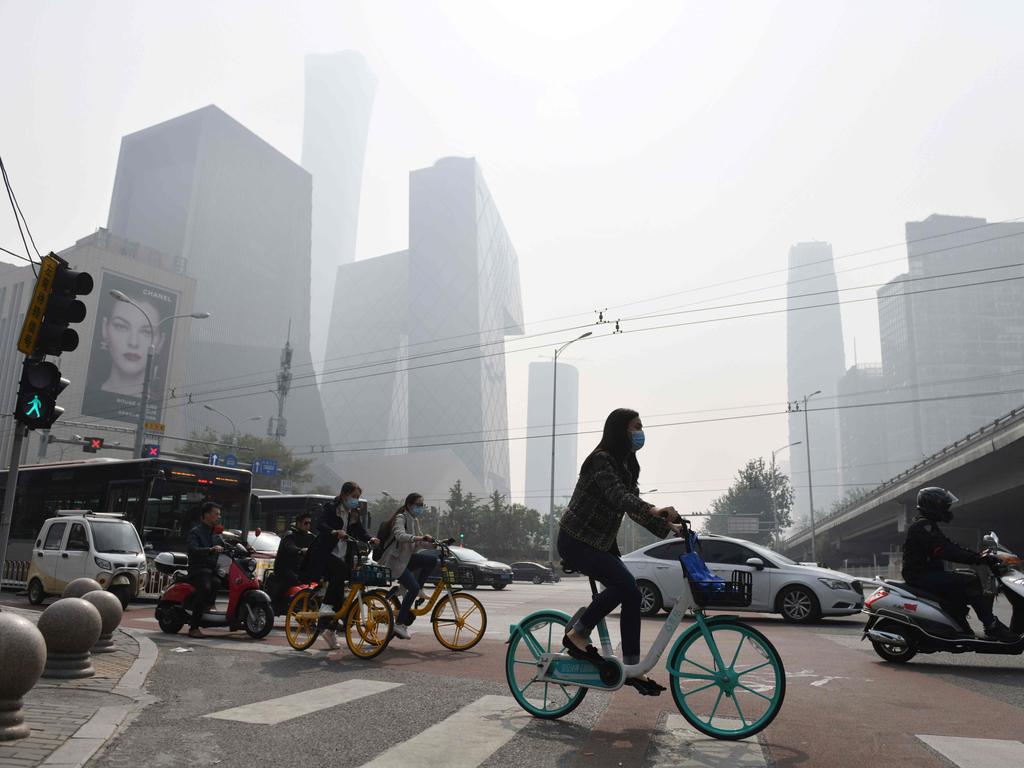
We can safely predict that Greta Thunberg won’t leave Glasgow with a smile on her face. Neither will anyone else, for that matter. Policy success is not a matter of winners and losers but a matter of prudence, the ability to make trade-offs from available options.
That is why every climate summit is a dismal failure in the eyes of climate crusaders. Nothing world leaders can feasibly do will satisfy their demands since for them it is all or nothing. Trade-offs are not part of their agenda.
Glasgow’s magnificent late 19th-century architecture is a monument to the wealth created by the Industrial Revolution the crusaders despise. It is a reminder, too, of the importance of stopping utopian visionaries from getting their own way. In the early 1950s, the wrecking balls began clearing the ground to build a new city from steel and reinforced concrete in a single brutal style dictated by Glasgow Corporation’s chief engineer, Robert Bruce.
Fortunately, the city planners arrived at a compromise, saving Charles Rennie Mackintosh’s School of Art and other architectural treasures while clearing the city’s working-class tenements. It was a social disaster. Rehousing residents in mass-produced high-rise blocks in wastelands miles from anywhere did not create the clean, beautiful and healthy society the planners had promised.

The worldwide planning crusade that despoiled numerous cities and wrecked countless lives in the decades after World War II shows what happens when a single-cause fallacy takes hold. The crumminess of people’s lives is not determined by the crumminess of the neighbourhoods in which they live. Poverty can’t be cleared with bulldozers.
The crusade to stop climate change must resist the same mistake of causal simplification if it wants to be taken seriously. Yet the irresistible force of the UN climate process is propelling us along that dangerous path with ever increasing speed.
Calm logic tells us something as complex as climate change cannot be reduced to a simple formula. It is not enough to conclude that x causes y without looking at the influence of a, b and c. Yet the activists appear convinced we can restore balance to the carbon cycle by abandoning coal, oil and gas. Relatively little attention is paid to other ways of reducing atmospheric carbon, like rejuvenating soil by encouraging plant growth.
Like the architectural determinists of the 20th century, the climate crusaders of the 21st are so convinced of their own righteousness that they minimise the obstacles in their way. The challenge looms so large in their minds that there is no time to consider the details or wait for other solutions to come along.

As Scott Morrison and Angus Taylor pack their cabin baggage for the flight to Glasgow this week, they could do worse than include a copy of Thomas Sowell’s masterpiece, The Vision of the Anointed, Self-congratulation as a Basis for Social Policy.
Sowell writes about the Teflon prophets who promote a view of the world concocted out of fantasy unsupported by evidence and impervious to real-world considerations. They make assertions of a great danger to the whole society, a danger to which the masses of people are oblivious and demand government action to avert impending catastrophe.
Arguments to the contrary are dismissed with disdain as either uninformed, irresponsible, or motivated by unworthy purposes.
For a rational, well-grounded Energy Minister like Taylor, on the other hand, there are no silver bullets and no certainties beyond those established by empirical observation. Conservatives are obliged to approach climate change like every other policy by remembering Sowell’s sobering words: “There are no ‘solutions’ in the tragic vision, but only trade-offs that still leave many unfulfilled and much unhappiness in the world.”

That, by all accounts, summed up the mood in the party room last Tuesday when Taylor presented the position he and the Prime Minister intend to adopt at the Glasgow meeting. It is doubtful there is a single MP or senator who sees the Coalition’s emerging position as the perfect solution, though there are many who will regard it as a reasonable trade-off between the things that bother voters in Dalby and those folks fret about in Double Bay.
There will be no change to Australia’s 26-28 per cent 2030 target, even though we’re on track to exceed it, unlike countries such as New Zealand and Canada, which will struggle to meet the vanity targets they set themselves. Australia’s net-zero 2050 target is backed by the reasonable assumption that we’ll come up with ways to get there without shutting down the economy. As Taylor succinctly puts it, Australia will achieve its targets through technology, not taxes.
Anyone who predicts today which technologies will be viable 29 years from now is guessing. Few in Glasgow in 1821 could have predicted the changes steam technology would bring by 1850, the lives that would be improved around the world by the ability to mass-produce goods and trade through steam-powered transport networks.

Few would have dreamed of the invention of an electric light bulb, though not yet its commercial application, by Warren De La Rue in 1840. Few in the uncabled, unlit, railway-deprived world of southern Scotland in the 1820s would have imagined that within three decades, telegraph messages would be passing more or less instantly from Britain to the east coast of the US underneath the Atlantic Ocean.
Today we appear less inspired and a little frightened by the inexorability of technological progress. We seem less willing to trust technology to solve the problems we wrestle with.
Instead, we engage in the hand-wringing of technological pessimism that turns any discussion of climate change into a dismal affair. Even the architectural splendour of Glasgow has become a source of shame.
“We were one of the great places of the Industrial Revolution,” Glasgow City Council leader Susan Aitken told The Scotsman. “Now is our time to repay the places in the world suffering from climate change for our history and past contribution to climate change.”
The Vision of the Anointed was published in 1995, long before the visionaries alighted upon climate change as their chief concern. Sowell’s observations, however, retain their sharpness. “Those who accept this vision are deemed to be not merely factually correct but morally on a higher plane … People are never more sincere than when they assume their own moral superiority.”
Nick Cater is executive director of the Menzies Research Centre.







